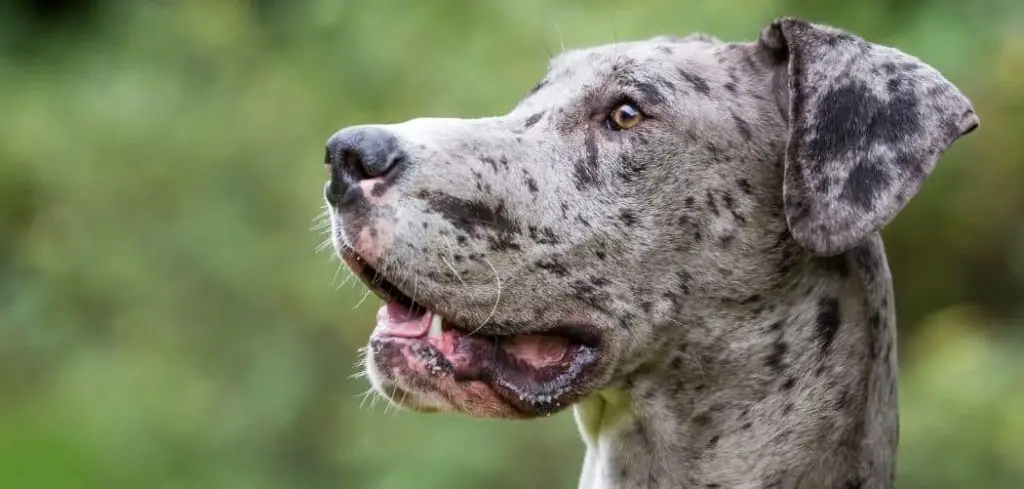When your dog has unusually smelly farts and isn’t eating, it’s a sign their digestive system may be off balance. This combination of symptoms could point to food intolerance, gastrointestinal upset, or a more serious health concern that needs attention.
We outline the common causes of dog smelly farts and not eating, what you can do at home, and when to seek veterinary help.
Dog Smelly Farts and Not Eating — Why It Happens
When your dog has foul-smelling gas and loses their appetite, it can point to digestive discomfort, dietary issues, or more serious medical concerns.
Smelly flatulence is often a sign of fermentation or bacterial imbalance in the gut, and when combined with not eating, it raises concern.
This could be due to poor diet, sudden food changes, gastrointestinal infections, food intolerances, or internal organ dysfunctions like liver or pancreas problems.
While some causes are minor and self-limiting, others require urgent veterinary care.

Common Causes of Dog Smelly Farts and Not Eating
Food Intolerance or Allergy
Food intolerances or allergies can cause inflammation in your dog’s digestive tract. This irritation may lead to excessive gas, stomach discomfort, and a lack of appetite.
You might notice signs like diarrhea, vomiting, itchy skin, or chronic ear infections along with the gas and reduced food intake.
Dairy, soy, beef, wheat, and chicken are common dietary allergens in dogs.
Poor-Quality or Spoiled Food
Consuming food that is low in quality, contains excessive fillers, or has gone bad can disrupt your dog’s digestion.
Spoiled food can lead to the buildup of gas-producing bacteria in the gut, causing foul-smelling farts.
Loss of appetite usually follows as the dog feels nauseous or bloated.
Even well-meaning treats or table scraps may contain ingredients that upset your dog’s system.
Read more: Dog Feels Warm and Not Eating (Is it something serious?)
Gastrointestinal Infection (Bacterial or Viral)
A GI infection can lead to inflammation in the stomach or intestines, reducing the ability to digest food properly.
This results in fermentation of food, gas buildup, and abdominal discomfort—prompting your dog to avoid eating.
Infections may be accompanied by vomiting, diarrhea, fever, and lethargy. Parvovirus, salmonella, or E. coli are examples of pathogens that may be responsible.
Pancreatitis
Pancreatitis is an inflammation of the pancreas and is often triggered by eating fatty foods or table scraps.
It causes significant abdominal pain, nausea, bloating, and a reluctance to eat. Gas production may also increase due to poor digestion.
This condition is especially common in small breeds or dogs prone to digestive issues and requires immediate veterinary intervention.
Inflammatory Bowel Disease (IBD)
IBD occurs when chronic inflammation affects the lining of the intestines, impairing digestion and nutrient absorption.
This results in chronic gas, bloating, changes in stool, and appetite loss.
While IBD is more common in middle-aged and older dogs, any breed can be affected. It often requires long-term management with diet changes and medication.
Intestinal Parasites
Worms and protozoa such as Giardia or roundworms can disrupt digestion, cause malabsorption, and result in gas, diarrhea, and decreased appetite.
Dogs may also exhibit a bloated belly, weight loss, or scooting behavior.
Parasite infestations are common in puppies and dogs exposed to contaminated environments and should be addressed with deworming treatment.
What to Do If Your Dog Has Smelly Farts and Is Not Eating
If your dog has foul-smelling gas and refuses food, start by reviewing what they’ve recently eaten. Avoid offering new treats or fatty table scraps. Stick to a simple, bland diet like boiled chicken and rice for 24–48 hours to ease digestion.
Ensure your dog has access to fresh water, and monitor for additional symptoms like vomiting, diarrhea, or lethargy. If your dog normally eats quickly, try feeding smaller portions more slowly to reduce gas.
Probiotics can help restore gut flora, but only introduce them after consulting your vet. If the symptoms persist longer than a day or worsen, it’s time to consult your veterinarian.
When to Call or Visit Your Vet
Seek immediate veterinary care if your dog displays any of the following:
Persistent vomiting or diarrhea
Severe bloating or visible abdominal discomfort
Bloody stool or black, tarry poop
Lethargy or weakness
Symptoms lasting longer than 24–48 hours
History of pancreatitis or chronic GI issues
A vet can perform fecal tests, blood work, and imaging to determine the underlying cause and prescribe the appropriate treatment plan.
Read more: Dog being sick and not eating and lethargic (Should you worry?)
Key Takeaway
When your dog has smelly gas and stops eating, it’s often a sign of digestive upset but can also indicate more serious conditions like pancreatitis, infections, or IBD.
Monitor closely, simplify their diet, and call your vet if symptoms don’t improve within a day.
Early intervention can ease discomfort and prevent complications—helping your dog get back to their tail-wagging self.
